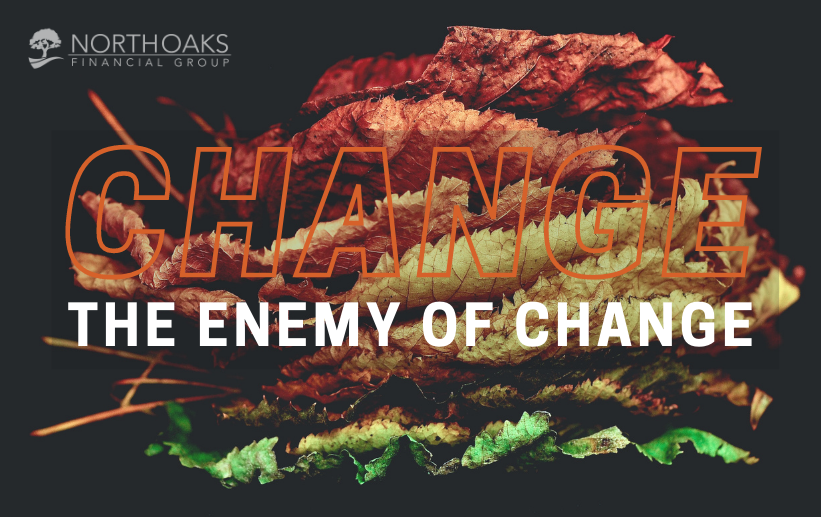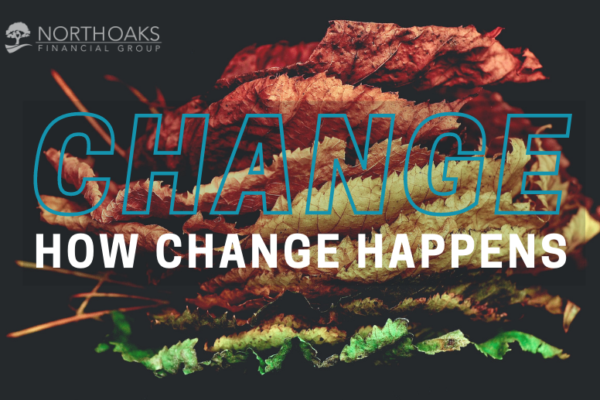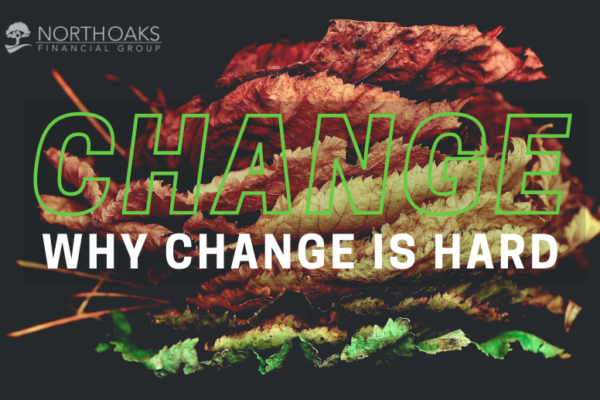This is the final article in a series on Change, which might seem like an unexpected topic for a financial advising firm to cover, but since most people worry about their money and our mission is to help them think beyond their money, change is an obstacle we help all our client’s face.
Read the previous articles: Why Change is Hard and How Change Happens
Wanting to be comfortable and resisting change are normal. They are as much a part of being alive as feeling tired or hungry.
It is natural (and often smart) to develop routines that make things simple and efficient, but as the saying goes, “nothing works always.”
Changing a habit or routine requires intentional effort and commitment, and although we often know the results of doing something new or different, most of us want to know the whole plan before taking the first steps. As we have explained in the previous articles in this series, we are wired to do things repeatedly because it is easier for our brains to do what is familiar than what is different, BUT…
- What if our “comfort” with how things are is really just acceptance of the status quo or an indifference to things that are no longer healthy for us? (Either because we don’t know what else we would do or are just scared of doing something different.)
- What if our resistance to change is a warning signal from our brains? (Because it doesn’t want to break apart and rebuild new neural pathways.)
- And what if we’ll never have the entire plan figured out? (In which case the only way to experience something other than our current life, work, health, relationship is to take the first steps toward something new/different/better and trust that we’ll figure out the next steps along the way.)
This is where faith and courage are needed; not necessarily in the spiritual sense, but a confidence that comes from knowing what you want and keeps you moving forward despite being uncomfortable or afraid, since as the theologian Thomas Merton once said, “What you fear is an indication of what you seek.”
Moving forward in faith and courage, you are more likely to set goals aligned with what is most important to you, which brings us to where we start the relationship with all our clients; VALUES.
Whether meeting with a prospective client or beginning to work with a new financial planning client, we guide them through an exercise to discover and define their “essential” values, since we can only provide advice that reflects what is most important to someone if we KNOW what is most important to them – and the only way we can know what is most important to them is if THEY figure out what is most important to them and share that valuable information with us!

During this series we have examined why change is hard (our brains are wired to be emotional), how change happens (see the Change Formula in the second article) and what gets in the way of doing new things (the focus of this article).
Change effects (and is affected by) our emotional, physical, and spiritual wellbeing, and supporting the holistic health of our clients is central to our mission of helping them think beyond their money.
We would love to learn about what is most important to you and help you begin thinking beyond your money, just click one of the links below to let us know what you value or fill out a brief form to start a conversation.






